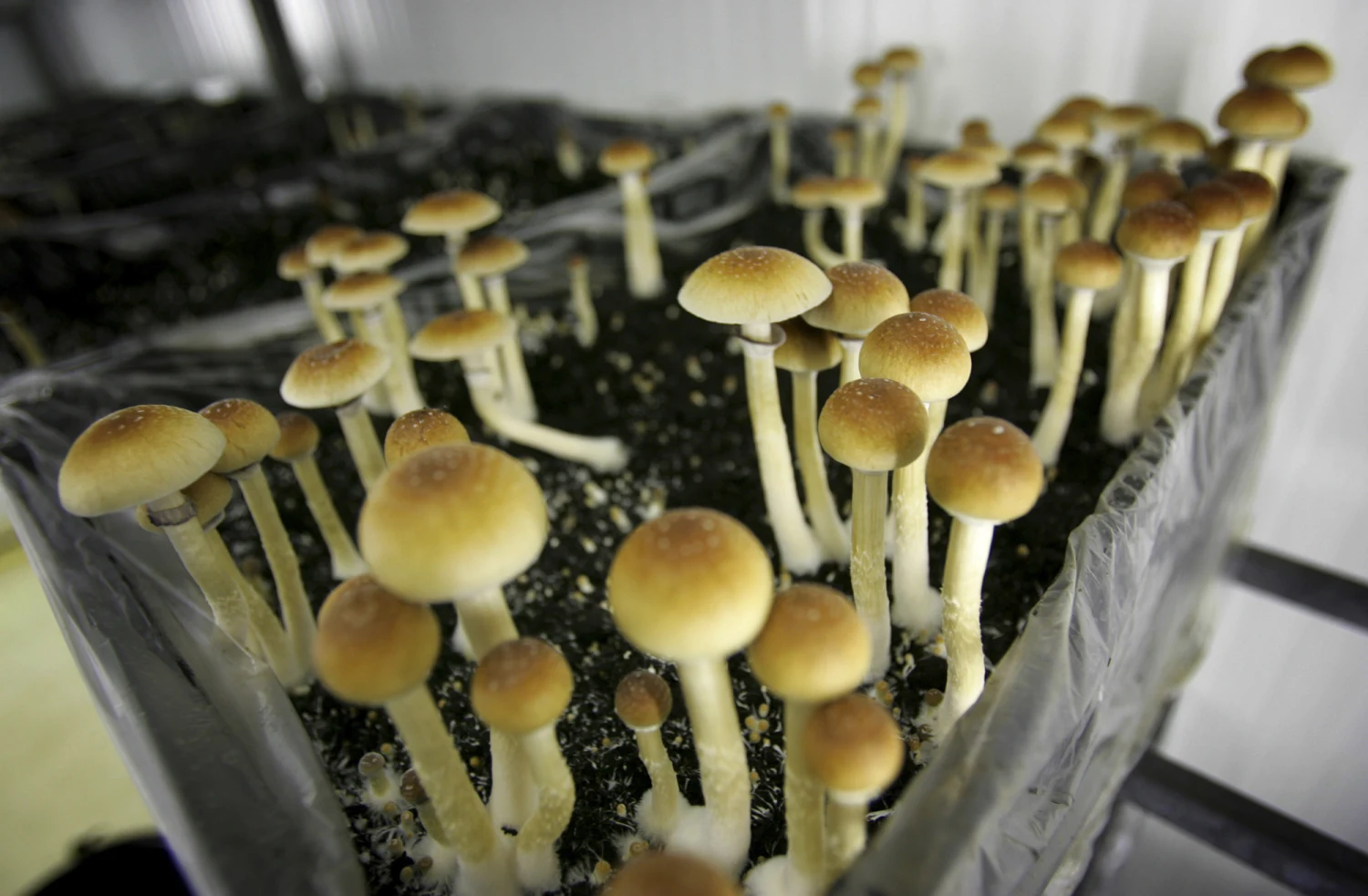Massachusetts voters debate over legalizing psychedelics with Question 4

Hallucinogenic mushrooms are cultivated at a farm in the Netherlands in 2007.Peter Dejong / AP file
In two weeks, Massachusetts voters will decide whether or not to legalize psychedelics for mental health and self-care. But does Question 4 on the ballot focus on consumer health or big business?
Chris Keohan, Spokesperson for The Coalition for Safer Communities, said it’s clear that local communities were not considered.
“If this were written in a more thoughtful way… If it’s actually doing what the ‘yes’ side is promising… I wouldn’t be sitting here on the ‘no’ side,” he said.
The Boston Globe and Berkshire Eagle have published opinion pieces stating voters should vote no on the bill. James Davis, co-founder of Baystaters for Natural Medicine, supports psychedelics but says the bill will not allow mental health professionals to have access to affordable treatment options for patients.
“So this law would crush small nonprofits like ours,” Davis said. “It would make the care inaccessible to most residents of Massachusetts, as well as those coming from Canada or other states.”
The bill is funded by some of the same super PACs involved in the psychedelic law in Oregon, including David Bronner of Dr. Bronner’s Magic Soaps.
In Oregon, treatments can cost between hundreds and even thousands of dollars.
We contacted Dr. Bronner’s Magic Soaps but have not received a comment.
“The people that are gonna benefit the most aren’t the people that they’re promising,” Keohan said. “It’s not the people with end-stage cancer, psychosis, or PTSD… It’s the venture capitalists that are funding this ballot question.”
New England Public Media reports that, according to campaign finance records, wealthy business executives from the Boston tech industry have also given large donations.
“Voters should understand, unlike the marijuana ballot question eight years ago, this doesn’t allow for community opt-out,” Keohan. “The only real real regulations they put in here is limiting what communities can’t do.”
Davis also wants voters to know that the ballot question is not simply about legalization.
“ A lot of people might wander into this voting booth thinking this is a simple debate between legalizing and not legalizing psychedelics. But the way we legalize it matters.”
According to Davis, the organization has been working on a better bill to help create safe access while including local input.
“Most of us are actually aligned that psychedelics have some benefits- even its opponents. It’s just a matter of how we introduce these to society to keep people safe and treatments affordable,” Davis said. “Those are really shared priorities that we’ll continue to work around after Question 4 is defeated.”
But in the end, it will be up to the voters on November 5th.